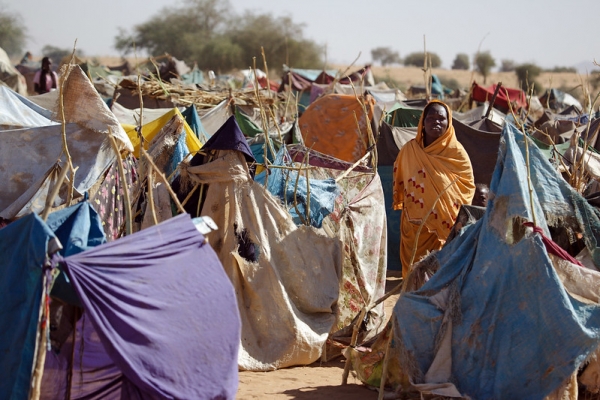From April 2023, Sudan, specifically the Darfur region, has been the theater of a civil war between the Sudanese Armed Forces (SAF) and the Rapid Support Forces (RSF), resulting in a civil war with gross breaches of the laws of war, affecting civilians.
Examples of these are the violations of the principle of distinction, due to the deployment of imprecise weaponry in highly civilian-populated areas, like shells and bombs. The indiscriminate use of such weaponry has led to the destruction and damage of civilian objects, like hospitals. It has been reported that indiscriminate attacks have led to 70-80% of health facilities being non-functional, resulting in more than 15 million civilians having no access to health care. Furthermore, the attacks have led to high rates of civilian deaths and injured civilians: only between April 15, 2024 and the end of August 2023 nearly 4,000 were killed and 8,400 injured.
Considering the current situation in Sudan, civilians live in the fear of death and terror of being subject to torture and sexual violence committed by members of warring parties. This, together with the limited possibility of acquiring basic necessities forces civilians to flee the country as it is becoming unbearable. It is reported that more than nine million civilians are fleeing to other African countries, such as Chad, Libya and Tunisia. Still, their escape is being obstructed by European Union immigration policies.
The EU is committed to protecting Sudanese civilians in conflict. Since the beginning of the conflict, it has contributed to humanitarian action in Sudan. However, nowadays, the EU's contribution to civilian protection is felt insufficient. Firstly, EU humanitarian funding in Sudan, which amounted to over €128 million in 2023, decreased to €117 million in 2024. Secondly, the EU recently imposed sanctions – an asset freeze and a travel ban in the EU – against six individuals affiliated with the Sudanese warring parties, instead of the warring parties as a whole for their culpability for civilian atrocities. Human Rights Watch argues that the EU, with its strong role at the UN level, should pressurize other countries, especially those in the Security Council, to take active action against Sudan and any other country supporting the war financially and providing weapons. Indeed, with its current humanitarian action in Sudan, as stated by Philippe Dam, Human Rights Watch's EU advocacy director “The EU is so neutral that it is inaudible”.
To read more, please visit:
- https://www.hrw.org/news/2024/06/24/eu-should-shift-gears-face-atrocities-sudan
- https://www.commonspace.eu/news/sudans-health-sector-hit-hard-14-months-war
- https://www.reuters.com/world/eu-adopts-sanctions-against-six-over-sudan-civil-war-2024-06-24/
- https://civil-protection-humanitarian-aid.ec.europa.eu/where/africa/sudan_en#facts--figures
- https://www.unhcr.org/news/briefing-notes/nearly-4-000-killed-civilian-property-destroyed-raging-conflict-sudan-s-darfur







